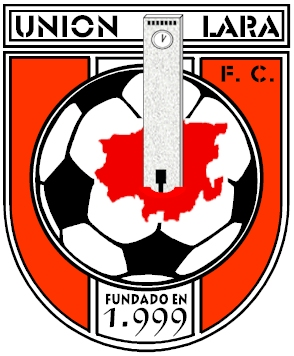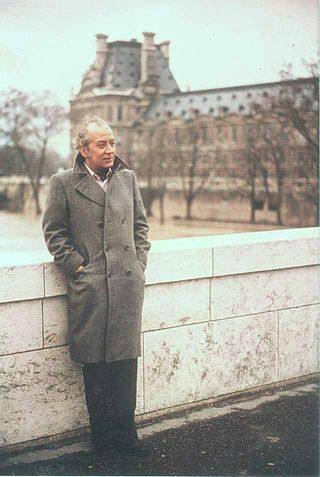
Rafael Arráiz Lucca is a Venezuelan essayist, poet, historian and professor.

Lara State is one of the 23 states of Venezuela. Lara is located in the Central-Western Region, Venezuela. The state capital is Barquisimeto.

José Antonio Ramos Sucre was a Venezuelan poet, professor, diplomat and scholar. He was a member of the Sucre family of Venezuela and the great-great-nephew of Antonio José de Sucre. He was educated at the Colegio Nacional, and then at the Universidad Central de Venezuela where he studied Law, Letters and Languages.

Unión Lara Sport Club is a Venezuelan football team based in Barquisimeto, Lara State. Founded in 1999, it currently plays in Venezuelan Third Division, holding home games at the Farid Richa Stadium, with a capacity of 12,480 people.
Ernesto Mayz Vallenilla was a Venezuelan philosopher.
Consuelo Hernández is a Colombian American poet, scholar, literary critic and associate professor of Latin American studies at American University since 1995.

The Jirajaran languages are group of extinct languages once spoken in western Venezuela in the regions of Falcón and Lara. All of the Jirajaran languages appear to have become extinct in the early 20th century.

Luis Britto García is a Venezuelan writer, playwright and essayist. His fiction has been recognised twice with the Casa de Las Américas Prize, for his works Rajatabla (1970) and Abrapalabra (1979). In 2002, he was the winner of Venezuela's National Prize for Literature, given as a lifetime achievement award. In 2005 he was recognized with the Ezequiel Martínez Estrada honorary award of Casa de Las Américas. In May 2012, he was appointed by President Hugo Chávez to the Venezuelan Council of State, "the highest circle of advisers to the president" provided for in the Venezuelan Constitution.
Cecilio Zubillaga Perera, better known as Chío Zubillaga, was a journalist from Venezuela. He was born in Carora on February 1, 1887 and died there on July 25, 1948.

Juan Sánchez Peláez was a Venezuelan poet and National Prize winner for Literature in 1975.
German Venezuelans are Venezuelan citizens who descend from Germans or German people with Venezuelan citizenship. Most of them live in Caracas, Maracaibo, Valencia, Colonia agrícola de Turén, El Jarillo, and Colonia Tovar where a small-reduced and decreasing minority of people speak the Colonia Tovar dialect, a German-derived dialect from their ancestry, and the Spanish language.

David Ramón Sánchez Palomares was a Venezuelan poet, born in Escuque. In 1975 received the National Prize for Literature; in 2006 the first Víctor Valera Mora International Prize for Poetry; and in 2010 the Ibero-America Award for Literature.

Carlos Augusto León Arocha was a Venezuelan poet, essayist, historian, politician and scientist.
Luis Pérez-Oramas is a Venezuelan/American poet, art historian and curator. He is the author of nine poetry books, seven recollections of essays, as well as numerous art exhibition catalogues. He has contributed as Op Ed author to national newspapers in Venezuela as well as to various literary and art magazines in Latin America and Europe.
Lotty Ipinza Rincón is a poet and lyric singer.
Ana Teresa Torres is a Venezuelan novelist, essayist and short story writer. Her writing, both fiction and non-fiction, is often concerned with Venezuelan history and politics, memory, gender, and psychoanalysis.

Ángela Segovia Soriano is a Spanish poet and researcher, the winner of the 2017 Miguel Hernández National Youth Poetry Award.

Keila Vall de la Ville is a Venezuelan author living in the United States. She is the author the 2016 novel Los días animales (2016) which received the International Latino Book Awards for Best Novel in 2018 and has been translated into English as The Animal Days (2021). Vall de la Ville's 2007 short story collection Ana no duerme (2007) was finalist in Venezuela's Concurso Nacional de Autores Inéditos. She has published the poetry book Viaje legado (2016), the short story collection Ana no duerme y otros cuentos (2016) and has edited the forthcoming anthology Between the Breath and the Abyss: Poetics on Beauty, a compilation of essays and poems by thirty-three contemporary poets on the subject of Beauty. Her fiction and non-fiction work is included in several anthologies. She collaborates with El Nacional's Papel Literario del Diario El Nacional, Viceversa Magazine and Prodavinci, among other digital media.

The Coro Revolution, also known as the Colinada Revolution, was an armed insurrection led by General León Colina that occurred in Venezuela between October 1874 and February 1875 against the government of Antonio Guzmán Blanco. The conflict was one of the main armed movements against the dictatorship of Antonio Guzmán Blanco.

Yolanda Pantin is a Venezuelan author who has mainly written poetry, although she has also worked in children's literature.












